Have you ever wanted to make those delicious desserts, but had to worry about the amount of sugar contained within? Then look no further than Stevia Sugar.
Stevia Sugar has been around for a while and is a perfect natural substitute for regular white or brown sugars.
It works as an excellent addition to recipes, health drinks and smoothies.
Not only is Stevia Sugar vegan-friendly, but it also contains fewer calories and carbohydrates than your average teaspoon of sugar – making it ideal for anyone looking for ways to manage their diet.
But how do you use this sweetener in place of normal sugars? And what are the five best substitutes for it? Read on to find out.
What’s Stevia Sugar?

Stevia sugar, or stevia leaf sugar, is a natural sweetener derived from the Stevia Rebaudiana shrub native to Paraguay and Brazil.
The shrub produces tiny white flowers which contain glycosides that are much sweeter than regular sugar.
This honey-like substance can be harvested and concentrated into solid or liquid forms of stevia sugar, making it a popular sweetening agent for those looking to reduce their intake of processed sugars and refined carbohydrates.
Unlike table sugar, stevia does not raise your blood sugar levels and offers several additional health benefits.
It produces a pleasant aftertaste that some people have described as mildly licorice-like although its flavor is largely determined by the species used to make it.
Stevia can also be blended with other sweeteners like monk fruit extract, which enhances its palatability.
As such, it has become an increasingly popular choice for people interested in naturally sweetened products that offer the same sweetness but with fewer calories.
The 5 Best Substitutes for Stevia Sugar
For those looking to reduce their sugar intake or who want to find a plant-based alternative to processed sugars, stevia sugar can be an attractive option.
Although it is not exactly the same as regular table sugar, it does have a similar taste and can be used for baking and cooking.
It is available in granulated, liquid and powder forms but does not have the same texture as regular table sugar.
Therefore, many people look for other substitutes for stevia sugar that provide the same taste but with more of a traditional consistency.
Here are five of the best substitutes for stevia sugar:
1 – Coconut Sugar
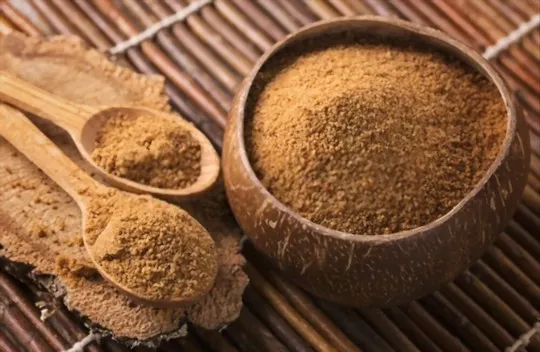
Coconut sugar, also known as palm sugar, comes from the sap of coconut palm trees.
It looks just like regular white sugar and is often used as a one-to-one replacement for sugar in recipes.
This type of sugar has a slightly nutty, caramel-like flavor and is low on the glycemic index, meaning it won’t cause your blood sugar to spike and crash.
Because it contains inulin (a prebiotic fiber that supports good bacteria in the gut) and small amounts of essential trace minerals like Iron, Zinc, Calcium, and Potassium it actually has some health benefits when compared to regular white sugar.
2 – Monk Fruit Sweetener
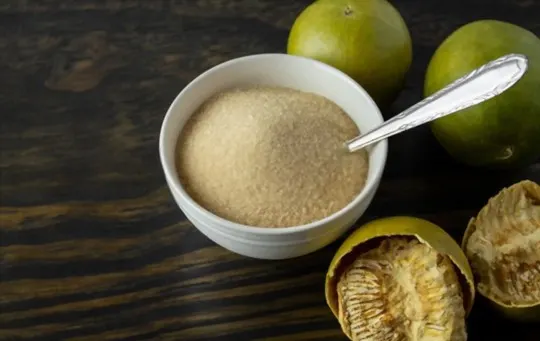
Monk fruit sweetener, also known as luo han guo, is made by extracting the juice from monk fruit and drying it out into a powder.
It has an intense and concentrated sweetness similar to that of stevia but no aftertaste and is calorie free.
Monk fruit sweetener is available in liquid or powdered form in most health food stores and some grocery stores.
It does not dissolve easily, so it works best for recipes that need a sprinkle of sweetness without extra liquid.
You can use monk fruit sweetener in equal measurements to stevia sugar as a substitution in your favorite recipes.
3 – Date Sugar
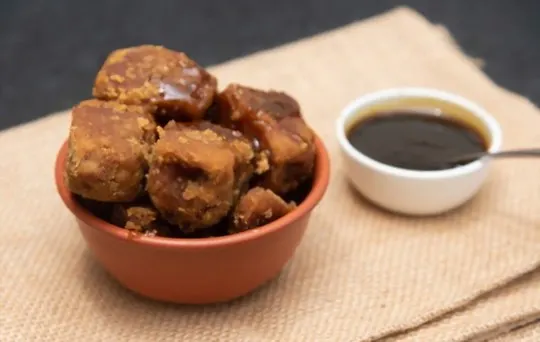
Date sugar is made from dehydrated dates and is a great way to naturally sweeten foods.
It has a unique flavor that is slightly heavier than refined white sugar and can be used in baking, as well as in smoothies and on cereals.
Date sugar also has more nutritional benefits than regular white sugar, such as higher levels of iron, calcium, potassium and magnesium.
It also boasts Vitamin A, Riboflavin and Niacin.
Date sugar is one of the least processed forms of natural sweetener available since it’s only made up of 100 percent dates – no extra ingredients like cane juice are necessary for refinement.
While it does contain some fiber that other natural sweeteners don’t have, you won’t typically find it in large quantities in any given product because it tastes much richer than white sugar, so it’s best used in moderation.
4 – Raw Honey
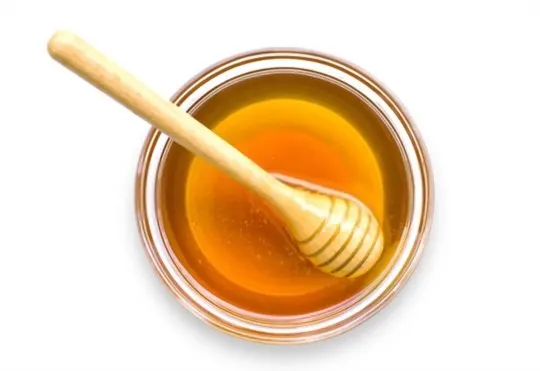
Raw honey is an all-natural sweetener that has been used for thousands of years.
It has a unique flavor and can be used in the same way as other sugars – to sweeten baked goods, hot drinks, and sauces.
Honey is rich in minerals, vitamins, and antioxidants.
In addition to its sweetness, it also adds essential nutrients to food.
For those looking for a healthier alternative to regular sugar, raw honey is an ideal choice.
The downside of honey is that it can have a higher glycemic index than other natural sweeteners.
Therefore it’s best used in moderation rather than as an everyday replacement for refined sugar.
5 – Maple Syrup
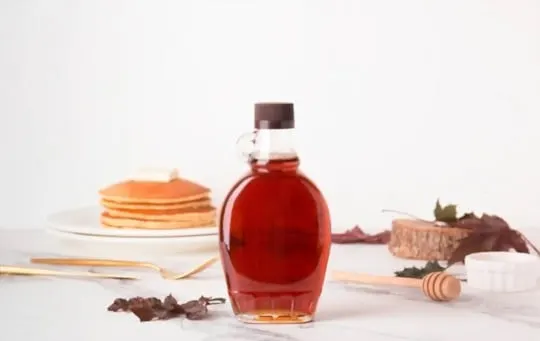
Maple syrup is one of the best substitutes for stevia sugar as it contains vitamins and minerals, as well as having a lower Glycaemic Index (GI) than other sweeteners.
Because of the natural molasses-like sweetness in maple syrup, a little can go a long way.
It has fewer calories than regular sugar and provides more flavor per spoonful.
When substituting for stevia sugar, measure for measure.
Beware that using too much maple syrup will create an unappetizing lumpy texture, so add slowly until desired sweetness is achieved.
Conclusion
In summary, stevia sugar is a natural sweetener obtained from the stevia plant.
It is considered to be a healthier option than artificial sweeteners and many of the refined sugars commonly used in food production.
Its unique flavor can take some getting used to and should be considered when using it in recipes.
Additionally, those who are sensitive to its aftertaste may want to choose another alternative like honey or maple syrup.
However, it does provide an excellent calorie-free option for sweetening drinks and baking dishes for those who wish to avoid added sugar.
There are a variety of substitutes for stevia sugar available today, so it’s easy to find one that suits your tastes and needs.
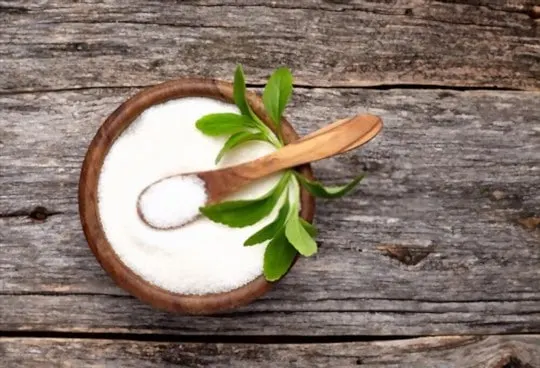
The 5 BEST Substitutes for Stevia Sugar
Ingredients
- 1 – Coconut Sugar
- 2 – Monk Fruit Sweetener
- 3 – Date Sugar
- 4 – Raw Honey
- 5 – Maple Syrup
Instructions
- Choose your preferred substitute from the list of options.
- Organize all of your ingredients.
- Use the proper substitute to cook your recipes.
